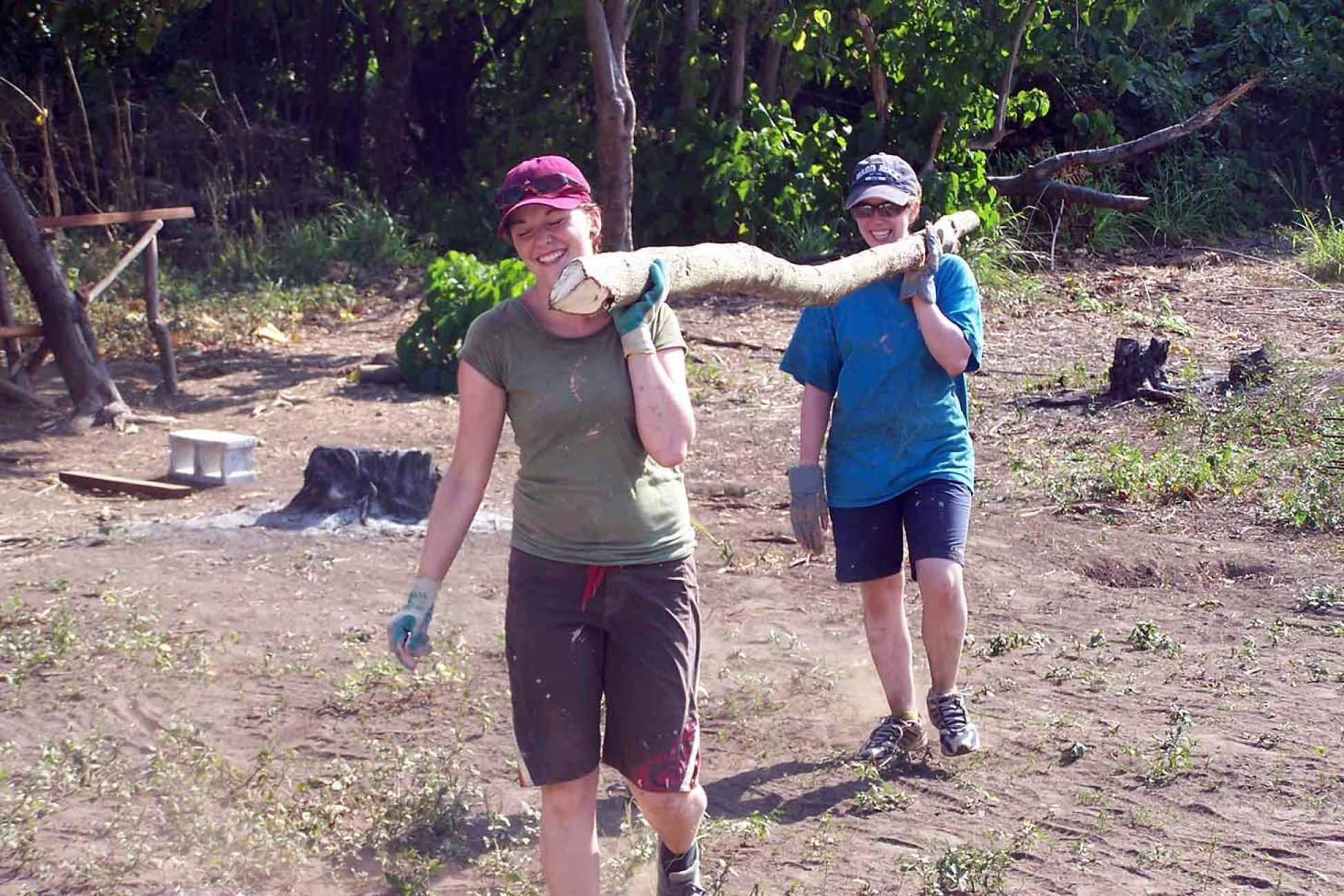Last fall, as a speaker on a panel discussion, I unexpectedly found myself to be the subject of intense scrutiny. There I was, sharing advice for gaining international work experience, when I confessed to what the audience decided was a heinous crime. My offense? Volunteering abroad on a short-term construction project nearly 10 years ago.
Now, first off, let me say that although I was taken aback, I was also impressed. After all, a decade ago volunteering abroad wasn’t even on the agenda for many undergraduate students—let alone the focus of a discussion about how to weigh the sustainability of “voluntourism” projects. I also couldn’t blame the audience for questioning my role as a short-term volunteer.
My immediate instinct was to clarify how my volunteer abroad experience was actually sustainable despite its short length. (For the doubters: we completed the project start to finish; it was initiated and supported by the community with funding from the European Union; we didn’t displace any local jobs; and the program allowed local youth to develop employability skills.) But then I remembered that my experience was just one of many. Instead of defending myself, I needed to defend short-term volunteer programmes in general.
There’s no doubt that prospective volunteers should question the ethics of overseas projects. But research is demonstrating that the impact of international volunteers reaches far beyond the period of time physically spent in a country.
Research is demonstrating that the impact of international volunteers reaches far beyond the period of time physically spent in a country.
“The vast majority [of overseas organizations] have [international volunteers] come to them for short periods of time, yet overwhelmingly they say it’s worth it,” says Dr. Erin Barnhart, who surveyed international NGOs on the topic three years ago. “The organizations said, ‘Our volunteers are so valuable to us while they’re here, but also part of the value is that they continue to connect, support and advocate for us after they return home.’ And that was something that came up over and over again throughout the research.”
This past week, I’ve witnessed the importance of this advocacy firsthand. On March 16, a category five cyclone hit the island nation of Vanuatu, leaving thousands homeless—an estimated 90 per cent of building’s in Port Vila, the island’s capital, were destroyed—and 16 dead. Crops were destroyed, entire villages were flattened and it’s still unknown how many remain without access to clean water.
While the catastrophic event has been first-page news in Australia and New Zealand, filling Facebook and Twitter newsfeeds alike, it’s barely even registered here in Canada. Fair enough; Vanuatu isn’t a vacation hotspot for North Americans, there’s few expats living in the country and there isn’t a large ni-Vanuatu immigrant community in North America. When I’ve brought up Cyclone Pam, I’ve mainly been met with blank stares until the conversation shifts to much more pressing news like the trailer for Lip Sync Battle. (I'll admit that it looks pretty damn good.)
However, there’s been one notable exception—Canadians and Americans who have volunteered in Vanuatu are actively rallying for the cause.
I know this because that short-term volunteer project that I participated in? It was in Vanuatu. And the construction project? It was a school, designed to double-task as the community’s emergency shelter.
In the hours following the cyclone, a flurry of messages from my fellow volunteers filled my inbox. It had became clear that our role as former international volunteers was to advocate for Vanuatu by encouraging people to donate to disaster relief organizations working in the area. Others took a more direct approach, including Canadians Karina Lorenzo and Elaine Morton, who both volunteered in Vanuatu in 2008. They’ve partnered with ni-Vanuatu Joel Kalpram to fundraise and distribute needed goods directly to the people.
This is far from the only example of international volunteers supporting their host communities. Every year, travellers visiting the Go Global Expos ask us for advice on how to start their own NGO. Countless others across North America host presentations, organize fundraisers, create Facebook albums or start blogs, all with the same purpose. After having a transformative experience overseas—regardless of whether it was for six months or for just six days—international volunteers return home with a desire to remain connected to their global community.
Without the connection created by volunteering, countries like Vanuatu would remain under the radar for most North Americans. (As it is, it’s a shame that many developing countries only seem to deserve a second thought when they’re struck by disaster. Funding for long-term sustainable development, including for infrastructure that could more readily withstand natural disasters, is needed year-round.) Becoming an international volunteer isn’t about a two-week or two-month commitment. Regardless of the amount of time spent overseas, it's a lifelong role.
Add this article to your reading list



